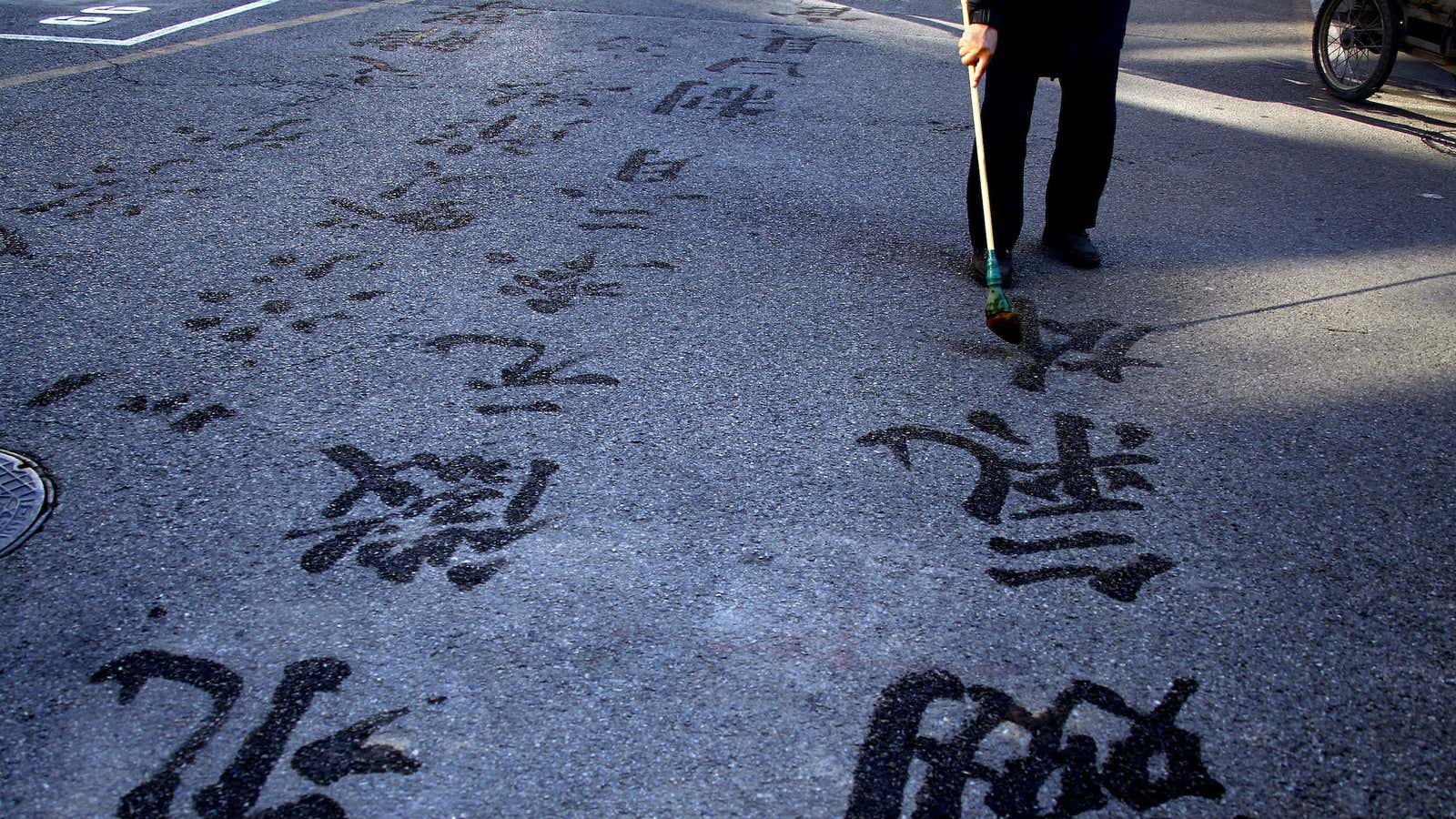After over a century of promoting Mandarin as the official language of China, almost a third of the population still doesn’t speak what the government calls putonghua or the “common tongue.” According to a new Chinese government study, 400 million Chinese citizens can’t speak Mandarin, reports Xinhua.
Over 90% of the population is Han Chinese, but Han Chinese speak some 1,500 dialects. (Most of those are spoken in the south of the country.) While the dialects are said to be just variations of Mandarin, linguists say some of them are so different they are practically distinct languages.
That has troubled Chinese leaders who have long striven for something they have recently termed “linguistic unity.” Modern Chinese leaders have seen a common tongue as one way to establish a stable, strong, unified China—after centuries of warring kingdoms and disunity on the mainland. In today’s China, it would help smooth over language barriers between the country’s millions of migrant workers who move from villages to cities.
To further this goal, the government passed a law in 2000 requiring that Mandarin be the official language in all major media and that governments “popularize putonghua.” When officials announced the recent data on the country’s Mandarin speakers, they also said they would begin pushing a language campaign in the countryside. One former official of China’s Ministry of Education proposed canceling English classes in primary schools to make room for more Mandarin.
The campaigns appear to be working, to some degree. A government study published in 2004 found that 53% of the population could communicate in putonghua, compared to 70% in the most recent survey. But Chinese officials have admitted they may never get the entire country to speak the common tongue. In 2010, thousands of Tibetan students demonstrated against a proposal to limit the use of Tibetan in schools. That same year, thousands of residents in southern China protested an order to broadcast the Asian Games in Mandarin instead of Cantonese. They marched with signs calling Cantonese their “mother tongue” and saying “Get lost, Mandarin!“
